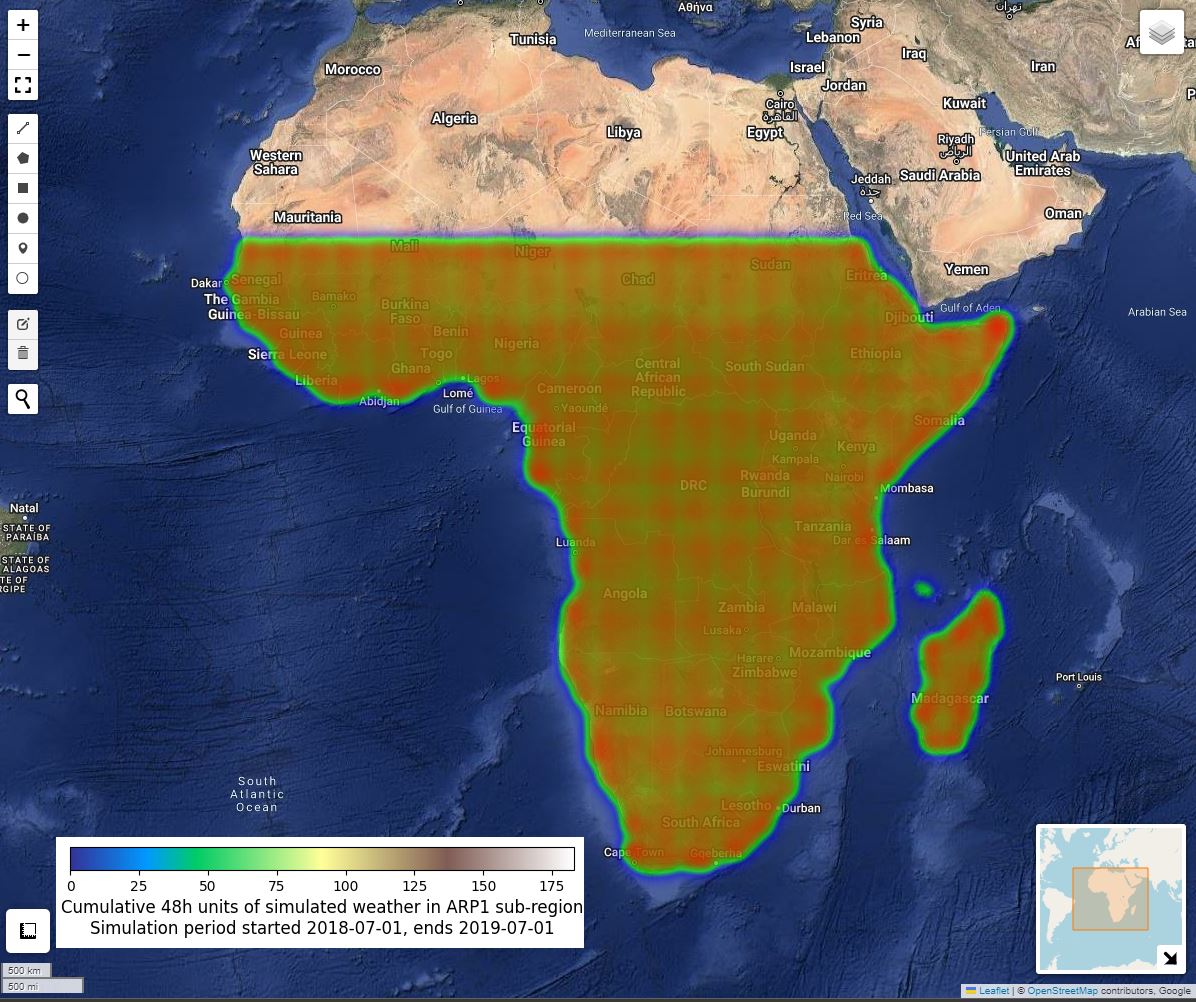The ARP project will be restarting by Monday November 4, following the technical pause it entered in December 2022.
Background
The Africa Rainfall Project (ARP) aims to simulate rainstorms in sub-Saharan Africa to improve regional weather forecasts. The goal is to run a weather simulation at a high resolution (1 km) for the whole region for a period of one year. Providing accurate weather predictions is crucial for self-sufficiency of the local farming community. By comparing results obtained through computing rainfall data from various sources using the World Community Grid, scientists can create increasingly more accurate forecasts, improve future simulations and in turn weather predictions.
In December 2022, the project was put on technical pause due to capacity limitations of their storage system, hosted within the national HPC setup in the Netherlands. To read more about the details of this storage limitation, and the detailed steps needed to restart the project, please see our previous April update.
ARP Restart Update
Previously, the ARP team hosted on their servers at TU Delft all scripts, data, and compiled applications required to prepare the inputs for new workunits. The ARP team would make those new inputs available to us for download, so that we could prepare the next generation of workunits and index them in BOINC. The output of completed workunits sent to us by volunteers, and then from us to TU Delft, were necessary but not sufficient to prepare the next generation of workunits. A series of preprocessing steps that reference the original meteorological data and surface temperature data must be run, and this is the pipeline that is now hosted on WCG servers in order to restart ARP1 after the ARP team kindly provided all scripting code and data, as well as helpful documentation. As a result, WCG is now in a better position to work with weather modeling scientific teams in the future. We have been also discussing a possible extension to a GPU version of WRF software with our lead scientific expert Lloyd A Treinish.
Each sub-problem of the ARP1 project sent to volunteers as a workunit, is differentiated from other sub-problems by location, and by time. Each workunit simulates the weather within a sub-region called a domain, and there are 35,609 overlapping domains totalling the sub-saharan region for which we are simulating the weather with NCAR’s Weather Research Forecasting (WRF) application. Each of these domains, in order to complete in a reasonable time on volunteers’ devices, simulates the weather in “generations” which are simply 48h increments, labelled from 000 to 183, that total to a year of weather simulation for the region.
Because the output of the previous generation is used as input for the next generation, the frontier must eventually synchronize across all domains for the overall computation to progress. Some domains can lag behind, and some clusters of domains that are far enough away from each other can generate some of the next generations’ inputs without waiting for their distant neighbours to catch up. In the past we have lost the wisdom of a previous generation, but restarting the simulation from the initial conditions or a checkpoint is possible and we would typically assign a higher priority to those workunits in BOINC until caught up.

Figure 1. Progress on Weather Forecast Simulation for each sub-region of sub-Saharan Africa. The start date of the one year simulation is 2018-07-01 and will end when calculating data for 2019-06-30.
We are now able to use the results we had been accumulating during the storage transition at TU Delft and begin generating the inputs to the next generation of ARP1 workunits again. In most cases, we will be able to pick up where we had left off at the leading generation (the bulk of which being between 130 and 140) and over time, due to the scripts being fully automated now, we will be able to prepare a steady stream of ARP1 workunits.
Thanks to the ARP team for their continued partnership with the WCG. Thank you to all the volunteers who helped process the first phase of the project, and thank you in advance to all those that will help us bring the ARP project to a successful finish.
WCG Team